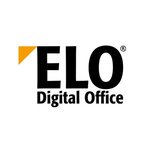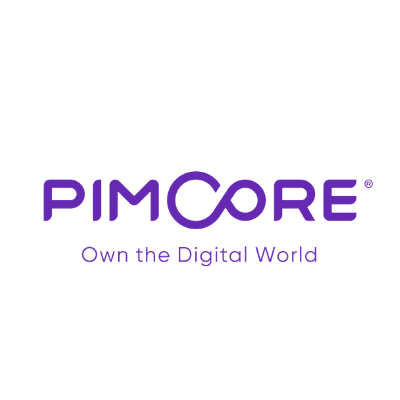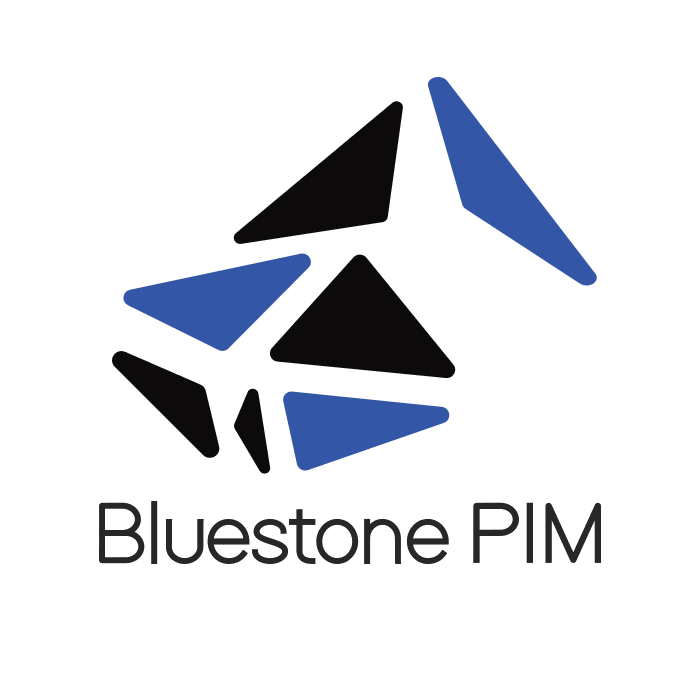What Is Enterprise Content Management Software?
A complete solution for organizing and managing all forms of digital content inside a company is enterprise content management (ECM) software. ECM software enables companies to safely and effectively store, retrieve, and distribute their content, including files, documents, videos, and other types of data. ECM software's primary goals are to increase information governance, collaborate better, and expedite content management procedures.
This robust application helps firms manage their content across its whole lifecycle by combining workflow automation, document management, records management, and many other capabilities. Organizations can do away with the requirement for numerous storage systems by using ECM software to create centralized repositories to store all of their content.
This makes it possible to get content more quickly and easily, saving time and effort when looking for crucial papers. Furthermore, ECM software frequently has sophisticated search features that make it easy to locate any information using keywords, tags, and metadata. ECM software's capacity to automate workflows and optimize company procedures is one of its greatest benefits.\
Businesses may reduce errors and save time and money by automating repetitive processes like document routing and approval. In addition to increasing production and growth, this frees up staff members to concentrate on other crucial duties. Additionally, ECM software has robust security safeguards that guarantee that no content is accessed by unauthorized parties.
Businesses may protect sensitive data and stay in line with industry requirements by implementing features like audit trails, encryption, and access controls. Finding an ECM program that facilitates interaction with other corporate systems, such enterprise resource planning (ERP) and customer relationship management (CRM) software, is crucial.
This makes it possible for information to be shared easily between platforms and offers a comprehensive view of the content. To sum up, enterprise content management software is a strong instrument that helps companies efficiently manage and govern their information, which boosts security, productivity, and efficiency. Organizations can choose the best solution for their requirements by being aware of the features and advantages of ECM software.
What Are The Recent Trends In Enterprise Content Management Software?
Enterprise content management (ECM) software has advanced significantly in recent years, making it an essential tool for companies of all sizes and sectors. The need for ECM software has increased dramatically as the significance of effective and well-organized data management has increased. We will examine the most recent developments in the ECM software industry and their potential advantages for your company in this buyer's guide.
1. Cloud-Based Solutions: Because of its many advantages, including lower maintenance costs, simple scalability, and remote access, cloud-based ECM solutions have been increasingly adopted. Many firms are now using cloud-based ECM software because of the growing demand for flexible and remote work possibilities.
2. Mobile Accessibility: ECM software providers have integrated mobile accessibility into their products as mobile technology advances. This increases efficiency and productivity by enabling users to access and control their material while on the go.
3. Machine Learning (ML) And Artificial Intelligence (AI): By combining these technologies, ECM software is getting smarter. These features enhance the user experience by enabling sophisticated content analysis, automated data classification, and intelligent search features.
4. Collaboration Tools: A key component of efficient content management is collaboration, and contemporary ECM software provides a number of tools to support it. Teams can collaborate easily no matter where they are thanks to features like document sharing, real-time editing, and commenting.
5. Integration With Other Business Systems: As more companies use a variety of software programs, integration has become essential. It is now simpler to access and manage data across platforms thanks to interfaces offered by leading ECM software with well-known business systems like CRM, ERP, and project management tools.
6. Blockchain Technology: As blockchain technology has grown, it has created chances for dependable and safe data administration. Blockchain is now being used by several ECM software suppliers for data security, audit trails, and document tracking.
Benefits Of Using Enterprise Content Management Software
Businesses need enterprise content management software (ECM) to efficiently handle and arrange their massive amounts of data and documents. This program offers businesses numerous advantages, making it a wise investment. We will go over the main advantages of utilizing corporate content management software in this buyer's guide.
1. Centralized Document Management: One of the key benefits of utilizing ECM software is that it enables companies to save all of their documents and data in one place. Instead of sifting through several systems or folders, users may now more easily access and manage crucial information. Additionally, it guarantees correctness and consistency in data handling.
2. Better Collaboration: Within the company, ECM software also improves collaboration. It removes the need for file transfers by enabling several users to view, edit, and share documents at once. This enhances team project efficiency and encourages real-time cooperation.
3. Enhanced Productivity: Companies may automate standard document management tasks like data entry and file organization with ECM software. Employees can concentrate on other crucial activities because they save time and effort doing this. Additionally, it lowers the possibility of human error, which boosts output.
4. Enhanced Security: When it comes to handling private and sensitive data, security is a major concern for companies. To prevent unwanted access to documents, ECM software offers sophisticated security features like audit trails, encryption, and access controls. Confidentiality, data protection, and adherence to industry rules are therefore guaranteed.
5. Simple Information Retrieval: ECM software facilitates the simple retrieval of information as required. Users may easily locate the papers they require, even if they are spread over several places, thanks to sophisticated search features. This improves daily operations' efficiency and saves time.
6. Cost Savings: There are several ways that ECM software helps firms save money. By using less paper, it saves money on printing, shipping, and storage. Additionally, it reduces the requirement for costly physical storage space. Additionally, as was already said, ECM software boosts productivity, which eventually results in cost savings. To sum up, enterprises may save money and manage documents more effectively with the help of enterprise content management software. This software's sophisticated features and capabilities make it an essential investment for businesses trying to improve overall efficiency and optimize their data management procedures.
Important Factors To Consider While Purchasing Enterprise Content Management Software?
A vital tool for companies of all sizes trying to effectively manage their digital material is enterprise content management (ECM) software. It might be difficult for customers to choose the best solution for their company given the increasing number of possibilities on the market. Therefore, before making a purchase, it is crucial to take into account a number of significant criteria. The key elements that purchasers should take into account when investing in enterprise content management software will be covered in this tutorial.
1. Scalability: When buying ECM software, scalability is one of the most important considerations. Your company's content management requirements will expand along with it. Consequently, it's critical to select software that can develop with your company and adjust to your evolving needs. Seek out software that allows for process customization, versatile storage options, and integration with other corporate systems.
2. Ease Of Use: Rather than increasing your team's workload, ECM software should make it simpler for them to access and manage digital content. Easy adoption and optimal efficiency are ensured by intuitive features and an easy-to-use UI. To make content management easier, look for software with a straightforward interface, drag-and-drop features, and search capabilities.
3. Security: When thinking about ECM software, security should be the first consideration due to the growing threat of cyberattacks. To be sure that your private information is safe, look for features like role-based access controls, data encryption, and frequent security updates.
4. Integration Capabilities: The program's capacity to interface with your current business systems, including CRM, ERP, and HR software, is a crucial consideration. This would facilitate smooth information transfer between various systems, increasing accuracy and efficiency.
5. Customization Options: The software should be able to meet the specific content management requirements of each firm. For software that can be customized to meet your unique needs, look for features like the ability to create custom fields, processes, and templates.
6. Vendor Assistance And Training: Take into account the vendor's degree of assistance and training prior to completing a purchase. To guarantee that your staff can get the most out of the program, a trustworthy vendor should provide extensive customer support, including training and technical help.
7. Expense: Since ECM software can be a substantial investment, it's critical to weigh the potential benefits to your company against the expense. Seek out software that delivers a high return on investment and a fair pricing structure.
What Are The Key Features To Look For In Enterprise Content Management Software?
Any firm that wants to effectively manage its enormous volume of digital content must have enterprise content management software (ECM). It might be difficult for customers to choose the best ECM solution for their company when there are so many options on the market. The following are the main characteristics to search for in business content management software to aid in this decision-making process:
1. Document Management: ECM's main purpose is to store, arrange, and oversee various document kinds. Seek out a solution that makes document management simple and intuitive, with features like search capabilities, document check-in/check-out, and version control.
2. Collaboration Tools: A successful ECM system should encourage teamwork and smooth communication. To guarantee seamless document collaboration, look for tools like task management, annotation, and real-time document editing.
3. Scalability: The volume of content you must oversee will increase as your company expands. Verify that the ECM software can manage the growing amount of content without experiencing any issues with stability or performance.
4. Security: The ECM software should have strong security mechanisms in place to protect critical company data. To make sure your content is secure, look for features like audit trails, data encryption, and user access controls.
5. Mobile Accessibility: Selecting an ECM solution that provides mobile accessibility is crucial given the growth of remote work. This makes it simple to view papers and collaborate while on the go, which boosts efficiency and productivity.
6. Integration Capabilities: CRM or ERP software, among other tools and systems used by your company, should be easily integrated with the ECM software. This facilitates corporate procedures and guarantees a steady flow of information.
7. Customization Options: Workflows and requirements vary from organization to organization. Choose ECM software that can be tailored to your unique business requirements rather than relying on a one-size-fits-all solution.
8. User-Friendly Interface: Any software's success and uptake depend on its user-friendly interface. Make sure the ECM solution's interface is simple to use and straightforward so that staff members can get used to it right away.
9. Analytics And Reporting: It's critical for business expansion to examine your content management procedures and pinpoint areas that want improvement. To monitor usage, see patterns, and make informed decisions, look for ECM software with analytics and reporting features. You may choose the best enterprise content management software to suit your needs as a business and assist you in effectively managing your digital material by taking into account these important characteristics. Business success can be achieved by streamlining your content management procedures, enhancing teamwork, and boosting productivity with a complete ECM solution.
Why Do Businesses Need Enterprise Content Management Software?
Businesses must efficiently handle and organize the ever-increasing volume of data and information they encounter in the current digital era. Enterprise Content Management Software (ECM) can help with this. ECM is an all-inclusive solution that enables companies to store, handle, and work together on any kind of digital content, including emails, videos, documents, and photos. But why is this software necessary for businesses? Let's examine the advantages of ECM in more detail and see why it is an essential investment for every kind of business.
1. Effective Document Management: Keeping track of physical documents can be a difficult undertaking in today's hectic work environment. In addition to consuming costly office space, it raises the possibility of document damage or loss. By offering a centralized, safe, and electronic document management system, ECM software removes these difficulties. This boosts productivity and efficiency by enabling companies to quickly search, access, and work together on documents from any place.
2. Simplified Workflows: ECM enables companies to automate repetitive and tedious processes, like document approvals and data entry. Workflows are streamlined, the possibility of human error is decreased, and staff have more time to devote to other crucial duties. ECM also provides processes that are flexible, enabling companies to modify the procedure to meet their own requirements.
3. Improved Teamwork: Good teamwork is more important than ever in the remote work environment of today. ECM software offers a single platform for document storage and access, facilitating smooth teamwork. By encouraging version control and real-time collaboration, this makes sure that everyone is working on the most recent data.
4. Better Data Security: Companies of all sizes are very concerned about data breaches. Advanced security features like audit trails, encryption, and access controls are provided by ECM software, guaranteeing that private data is shielded from unwanted access. In addition to helping businesses adhere to data privacy laws, this increases trust with clients and partners.
5. Cost Savings: Businesses can save a lot of money by implementing an ECM system. Organizations can boost productivity and lower operating expenses by doing away with paper-based procedures and physical storage space. ECM also makes it simple for companies to track and recover documents, which saves time and money compared to conventional document management.
How Much Time Is Required To Implement Enterprise Content Management Software?
Enterprise content management software implementation can be a laborious procedure that needs to be carefully planned and carried out. The size of the company, the software's complexity, and the organization's readiness to accept the new system are some of the variables that will affect the precise implementation schedule. It can take anywhere from six months to a year on average to establish enterprise content management software.
The phases of planning and preparation, installation and setup, and training and adoption are all included in this schedule. The organization should collect requirements, identify important stakeholders, and create a project timeline during the planning stage. This phase usually lasts two to three months, though this can change based on the organization's size and complexity.
The program must be configured and integrated with current systems during the installation and configuration process. Software consultants and IT specialists may be needed for this phase, which could take three to six months. For the software to be implemented and used successfully, the training and adoption phase is essential.
This stage, which usually lasts two to three months, entails educating users on the software's functionality and making that the company is utilizing it efficiently. It is crucial to remember that implementation schedules might change and that larger firms or those with more complicated needs may require more time. To guarantee a successful and seamless implementation process, companies must establish a clear timeline and engage with their software vendor.
What Is The Level Of Customization Available In Enterprise Content Management Software?
Depending on the particular product and its capabilities, several levels of customization are available in enterprise content management software (ECM). But generally speaking, ECM software is quite adaptable, enabling companies to customize the system to fit their particular requirements and workflows. One of the main advantages and selling features of ECM software is its degree of flexibility.
A variety of customization options are usually available with ECM software, including the ability to define user roles and permissions, create custom workflows, and configure metadata fields. This makes it possible for companies to create a solution that complements their own document management and business procedures. To further streamline their document management procedures, some ECM software also lets users design their own forms and document templates.
The capacity to combine ECM software with other business systems and apps is another facet of customization. By removing the need for manual data entry and lowering the possibility of errors, this connection enables a smooth flow of data and information between various systems. Additionally, a lot of ECM software providers provide expert services to assist companies in tailoring the program to meet their unique requirements.
Along with more complex customisation services like making bespoke dashboards and reports, this might also include onboarding and training. All things considered, the degree of personalization offered by ECM software enables companies to create a document management system that meets their particular needs.
In addition to increasing production and efficiency, this guarantees that companies can modify the system to meet changing needs. Therefore, when assessing ECM software, make sure to take into account the degree of customisation available and how well it fits your company's requirements.
Which Industries Can Benefit The Most From Enterprise Content Management Software?
Businesses in a variety of industries now depend heavily on enterprise content management software (ECM) to handle and arrange their massive amounts of digital content. Businesses are depending more than ever on ECM software to increase productivity and optimize operations as a result of the growing trend toward digitalization and remote work. The following are the leading sectors that stand to gain the most from ECM software:
1. Healthcare: A vast amount of sensitive patient data is handled by the healthcare sector, which requires effective and safe management. In order to facilitate information access and sharing and maintain HIPAA compliance, ECM software can assist healthcare organizations in centralizing and digitizing their patient records.
2. Legal: A large volume of legal documents and contracts are handled by law firms and legal departments. By making it simpler to find, monitor changes, and collaborate on documents, ECM software can enhance their document management procedures. This results in increased output, less time spent on administrative duties, and better customer service.
3. Financial Services: Risk management and compliance are essential in the financial services industry. ECM software may help with audit trails, version control, and document retention, ensuring that businesses successfully reduce risks and adhere to requirements. By facilitating rapid access to pertinent papers, it can also enhance client relations.
4. Education: Educational institutions create and handle vast amounts of digital content, ranging from faculty documents to student records. ECM software can facilitate better faculty-student cooperation, automate workflows, and expedite content management. Additionally, it can improve learning materials' accessibility, which will help students with disabilities.
5. Manufacturing: Manufacturing businesses handle a lot of paperwork, including compliance papers and product specifications. Their document control procedures can be streamlined with the use of ECM software, guaranteeing that stakeholders always have access to accurate versions. Better compliance, lower expenses, and higher-quality products are possible outcomes of this.
6. Government: Governments have a wide range of content management requirements due to their many departments and agencies. Employees can readily access government papers by centralizing and tracking them with the use of an ECM system. Additionally, it can help guarantee adherence to governmental regulations and react to requests for public records.
Conclusion
In conclusion, companies may manage, organize, and retrieve their enormous volumes of data and documents with the help of Enterprise Content Management Software (ECM). It offers a centralized system that improves collaboration and expedites processes, leading to higher output and efficiency. It is essential to take your unique business demands and objectives into account when choosing an ECM program.
A detailed evaluation of the features, scalability, integration potential, security, and cost of various solutions should be part of this. Remember that the appropriate ECM software will be a wise long-term investment since it will meet the needs of your company both now and in the future. We hope that this tutorial has given you a thorough grasp of ECM software and how it might affect your company.
We are certain that you can make an informed choice and select the ECM solution that best suits your demands if you carefully weigh the aforementioned variables and apply our suggested evaluation criteria. I appreciate you reading, and I wish you well as you pursue ECM.






















